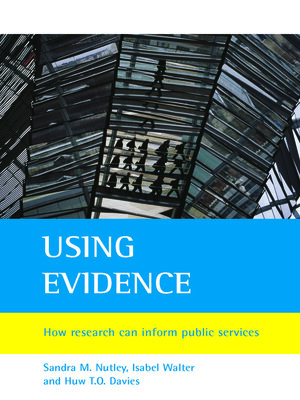
Sign up to save your library
With an OverDrive account, you can save your favorite libraries for at-a-glance information about availability. Find out more about OverDrive accounts.
Find this title in Libby, the library reading app by OverDrive.



Search for a digital library with this title
Title found at these libraries:
| Library Name | Distance |
|---|---|
| Loading... |
This book provides a timely and novel contribution to understanding and enhancing evidence use. It builds on and complements the popular and best-selling "What Works?: Evidence-based policy and practice in public services" (Davies, Nutley and Smith, Policy Press, 2000), by drawing together current knowledge about how research gets used and how this can be encouraged and improved. In particular, the authors explore various multidiscipliary frameworks for understanding the research use agenda; consider how research use and the impact of research can be assessed; summarise the empirical evidence from the education, health care, social care and criminal justice fields about how research is used and how this can be improved and draw out practical issues that need to be addressed if research is to have greater impact on public services. "Using evidence" is important reading for university and government researchers, research funding bodies, public service managers and professionals, and students of public policy and management. It will also prove an invaluable guide for anyone involved in the implementation of evidence-based policy and practice.







